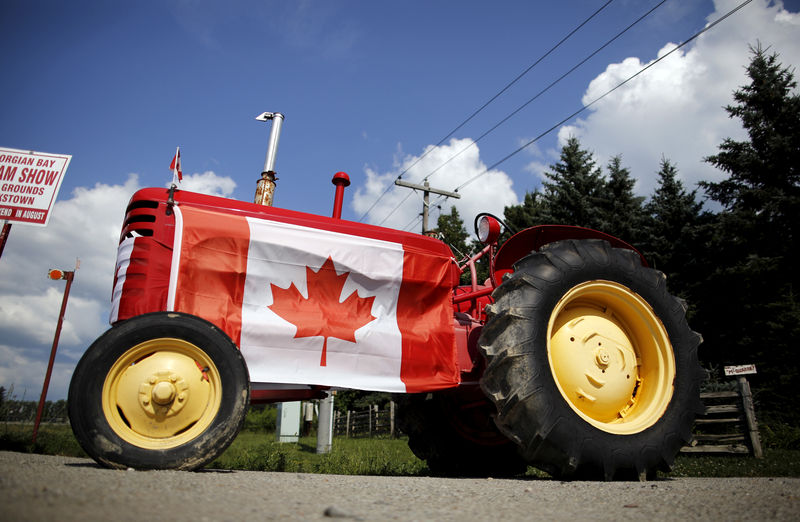By Chris Prentice and David Ljunggren
NEW YORK/OTTAWA (Reuters) - Dairy remains a sticking point between the United States and Canada as the countries prepare to sign a new North American trade pact this week, according to four sources familiar with the matter.
U.S. objections to Canada's protected internal market for dairy products was a major challenge facing negotiators during talks on the new U.S.-Mexico-Canada Agreement (USMCA), and the issue remains a problem.
White House economic adviser Larry Kudlow on Tuesday said President Donald Trump would sign the deal on the sidelines of the Group of 20 summit in Argentina this week.
But with time running out there are still disagreements on dairy and other issues, and Canadian officials were slightly less emphatic about the chances of the deal being inked on Nov. 30 as originally planned.
"Our objective ... (is) to get to a Nov. 30 signing, that's what we are working towards," Canadian Foreign Minister Chrystia Freeland told reporters.
Speaking separately, a senior Canadian official said, "We are still tracking towards signature of the agreement but ... the discussions around the signing and the details remain to be worked out."
Officials said differences sometimes emerge as bureaucrats examine language agreed upon by negotiators.
The sources said Ottawa was pushing back against U.S. demands for more information about Canada's supply management system, a complex arrangement of production quotas and import tariffs designed to protect the domestic industry.
"There's been good progress, but it's true that not everything is done. There is some concern on dairy -- there are transparency issues with Canada's pricing scheme," one of the U.S. sources said.
During negotiations, Trump repeatedly demanded concessions on dairy and accused Canada of hurting U.S. farmers with high tariffs.
Under the pact, Canada agreed to scrap a class of milk that U.S. producers said was tantamount to circumventing anti-dumping rules. It also offered around 3.5 percent of the domestic market. In exchange, the United States backed off efforts to force Canada to scrap supply management.
"The U.S. made a big compromise on that. ... We want to know what they will do to prevent another circumvention," said the source, who asked to remain anonymous.
Ottawa is uneasy over the amount of information Washington is seeking, said a Canadian source briefed on the matter.
"We really don't want to be renegotiating the agreement," said a second Canadian source.
The office of U.S. Trade Representative Robert Lighthizer was not immediately available for comment.
Michael Dykes, president and chief executive officer of the International Dairy Foods Association, said that during the talks Washington sought to ensure it had closed any loopholes that would prevent access on dairy.
"The U.S. wanted greater transparency to avoid any trickery ... (it) has a long history of challenges trying to determine what exactly the dairy policy is in Canada," he said in an interview.

Earlier this month a source said Canada was resisting U.S. attempts to change the USMCA text and the issue might have to be referred to ministers.